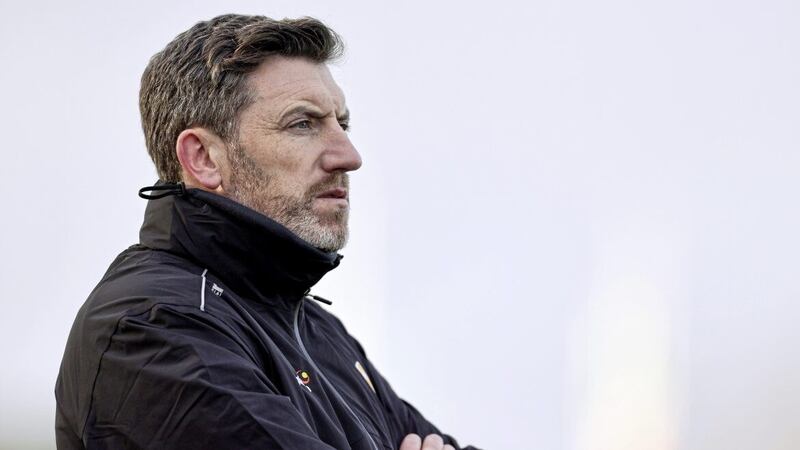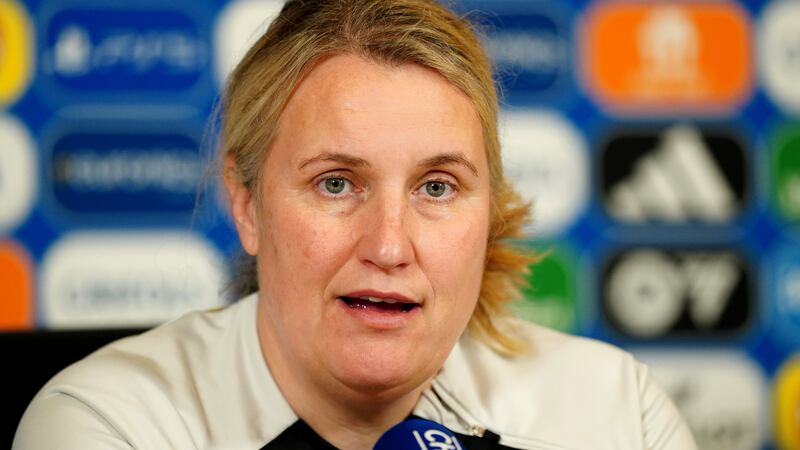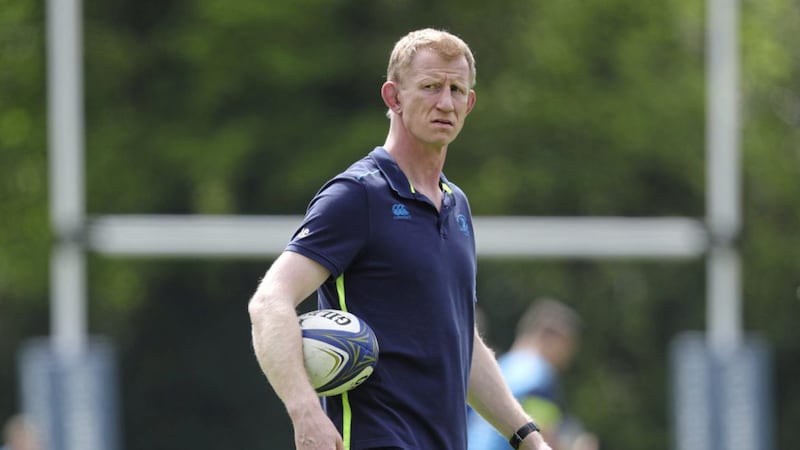THROUGHOUT Brian Cody’s time as Kilkenny manager, arriving at the big time was not always a linear progression in Cody’s world. Marquee names or productive underage careers meant nothing when one of Cody’s greatest gifts as a manager was spotting something in players that he could mould and shape into something bigger.
For Cody, character always came before hurling. Eddie Brennan, Derek Lyng, Brian Hogan and Martin Comerford never played minor for Kilkenny. Those four provided the greatest expression of Cody’s philosophy, but Lyng was the ultimate exemplar of it.
As well as never playing minor, Lyng effectively never hurled U21 for Kilkenny either - he was an unused substitute for the 1999 Leinster and All-Ireland U21 finals against Offaly and Galway.
Coming from a small junior club, Emeralds, in north Kilkenny, Lyng didn’t have the stage of a senior club championship to showcase what he could do either.
Yet Cody saw something in Lyng that nobody else did before him. Lyng went on to win six senior All-Irelands, but he would have won more only injury forced him to retire early. Not long after he did, Cody recruited him as a selector, a role he fulfilled between 2014 to 2019.
“When Brian changed his backroom team in 2014, he brought in Derek Lyng,” wrote Jackie Tyrrell in his book ‘The Warrior’s Code’. “I felt there was a message there straight away. Brian loved Derek. He was a savage warrior, a guy Brian always wanted in the middle of the battle.
“Cody could have brought in someone with more of a coaching background, someone laden down with more All-Irelands than Derek. He brought in Lyng because he represented everything Brian believed in.”
Lyng always espoused those Cody values. His game was never about skill and class, but Lyng brought a relentless hardness and edge every day he played. He was always one of the first names down on Cody’s team-sheet.
It was almost fitting that Lyng took over from Cody when he stepped down last July after 24 years at the helm. Stepping into that role was always going to be a daunting and intimidating job, but the bravery Lyng has shown in taking it on is a neat metaphor for his character and personality.
Much like Alex Ferguson after he left Manchester United, there was never a doubt that Cody would have a massive influence on the appointment of his successor. Lyng may have stepped away from Cody after the 2019 All-Ireland final but he went straight into the role of Kilkenny U20 manager. The backroom team Lyng assembled – which included Peter Barry and Michael Rice, two more hugely respected players during Cody’s reign – immediately had the look of a senior management team in waiting.
Lyng guided Kilkenny to last year’s All-Ireland U20 title, defeating Limerick in the final, but it wasn’t all plain sailing along the way. A poor performance against Galway in the Leinster semi-final in December 2020 was an early setback. When they met Galway again at the same stage in July 2021, Kilkenny trailed by 13 points at the break before a late surge got them within five points of Galway.
In a wide open championship last year, Kilkenny profited from not having any of their side play senior championship, which impacted three of the teams they beat along the way – Wexford, Galway and Limerick. Either way, it was a win against the head, with Lyng driving the machine.
There was always a deep respect for how Lyng had quietly and diligently gone about his business, especially after the furore and heated standoff between Cody and Henry Shefflin that defined so much of last year’s championship.
Shefflin’s status as the most natural successor to Cody radically changed after he took over Galway. When Cody departed in July, there was some talk that Shefflin would leave Galway to step into that vacancy, but that was never a runner. In the huge vacuum left by Cody, Lyng was the only candidate cut out to fill that void. And nobody would have argued that case more than Cody.
With Kilkenny’s culture and way having always been guided and governed by understated pragmatism, Lyng was the ideal fit. His popularity would have made him an instant favourite with the Kilkenny public but Lyng’s arrival also blended freshness with a fundamental grasp of that Kilkenny way, and how it worked so well for so long.
On the other hand, it hasn’t always worked as well as Kilkenny would have liked over the last few years. Leading Kilkenny to the last three Leinster titles, as well as taking Limerick to the wire in last year’s All-Ireland final provided further evidence of Cody’s greatness. But Kilkenny still need to bring something different to the table if they are to be successful on the All-Ireland stage again.
Can Lyng return Kilkenny to that place? His starting points are obvious, especially around Kilkenny’s tactical approach. It was obvious that Kilkenny would push up on Limerick’s short puckouts in last year’s All-Ireland final but that’s exactly what Limerick wanted them to do as their preferred approach is to go long into space.
Limerick completely exploited Kilkenny conceding that space, especially when their half-backs didn’t mark on the outside when Limerick adopted the bunch and break tactic. During the game, Gearóid Hegarty, Kyle Hayes and Tom Morrissey won a colossal 17 puck-outs.
After his appointment, Tyrrell said that Lyng “might be a bit more open to modern ways of hurling”. He will aim for Kilkenny to be more tactically fluid and adaptable but Lyng’s biggest challenge will be the reconstruction of the side during his three year term.
Some of the successful U20s need to be integrated; Kilkenny also need to get more out of the generation in their mid-20s, many of whom have underachieved; Lyng will also have to decide what to do with a cohort of players he played alongside who are now in the winter of their careers; TJ Reid, Richie Hogan and Conor Fogarty.
Yet however he goes about the job, Lyng will do it the Kilkenny way.








